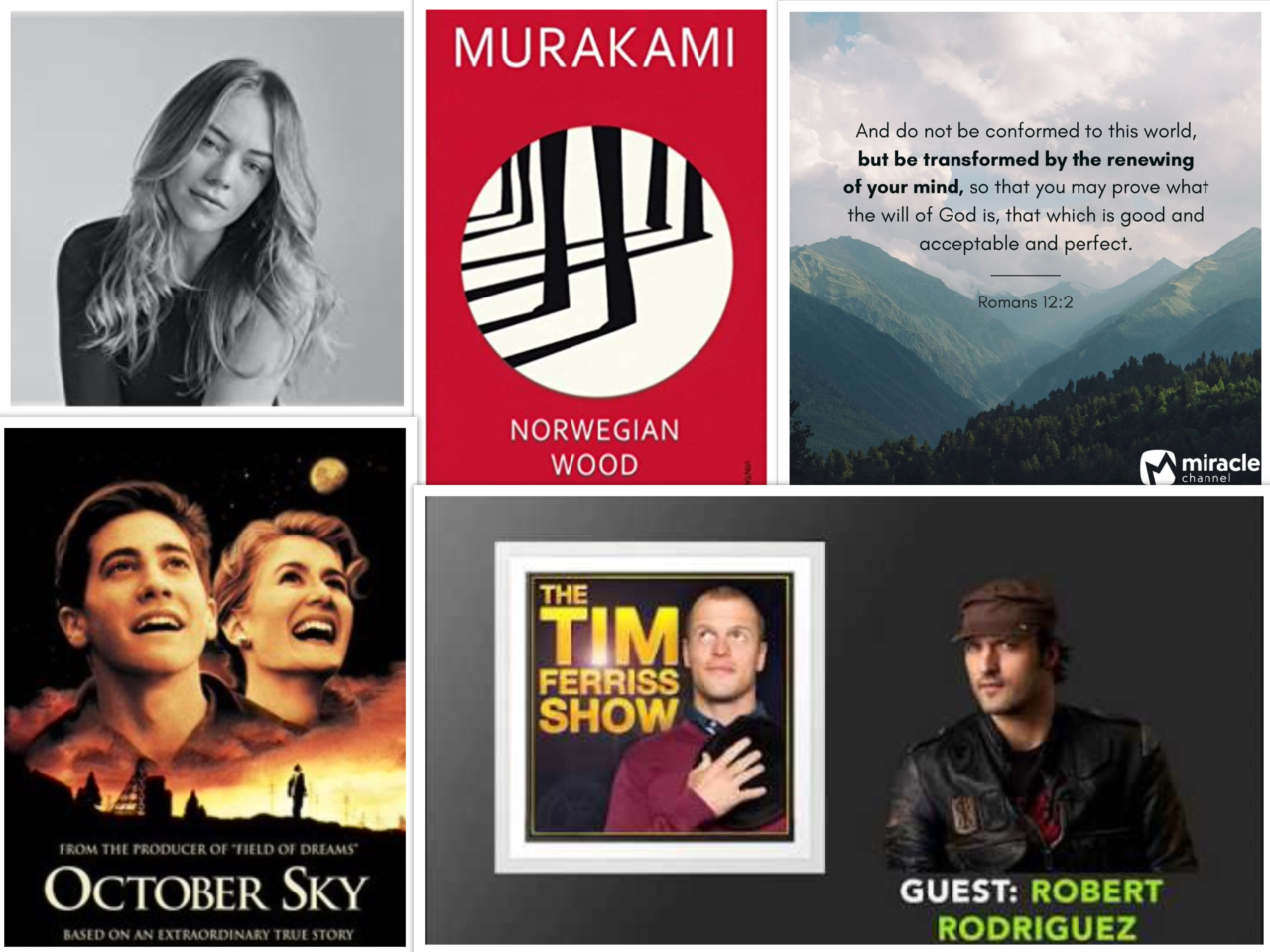Sunday Supplement #75 (October 16th, 2022)
Below is another Sunday Supplement with a quote worth sharing, a book worth reading, a movie worth watching, brainfood worth consuming, and a spiritual passage worth pondering.
I hope you take something away from these recommendations that enriches your week ahead!
Quote of the Week:
“Resilience is knowing that you are the only one with the power and the responsibility to pick yourself up.”
– Mary Halloway
Book of the Week:
The Mastery of Love – Don Miguel Ruiz
Don Miguel Ruiz was born to parents who belonged to the Toltecs of Mexico. He chose to follow a different path than his ancestors and decided to become a surgeon.
However, after a near-death experience, Ruiz devoted himself to mastery of the ancient ancestral wisdom of the Toltecs and later passed on what he learned.
In The Mastery of Love, Ruiz highlights assumptions and fear-based beliefs that lead to suffering in relationships and undermine love.
The book shows how we can heal from the ill practices and traumas that affect our relationships so we can return to loving ourselves and loving others.
Ruiz’s books have been on the New York Times’s bestsellers list for over a decade. In Sunday Supplement #38, I featured his book, The Four Agreements.
Movie of the Week:
Harold Ramis’s film follows a narcissistic weatherman who finds himself stuck in a time loop on Groundhog Day, fated to keep repeating the same day.
The 1993 movie stars Bill Murray as weatherman Phil, Andie MacDowell as producer Rita, and Chris Elliott as cameraman Larry.
The three travel to Punxsutawney for the annual coverage of the Groundhog Day festivities but cannot leave the same day after a blizzard hits.
As Phil continues to wake up on the same day, aware he is destined to repeat that day continuously, he goes through an existential journey.
Groundhog Day has a brilliantly comedic script, but the core of the story is grounded in meaningful themes that help it rise above a simple movie just for laughs.
Brainfood of the Week:
How to Stay Calm Under Pressure – Noa Kageyama & Pen-Pen Chen | TED-Ed
The video discusses different experiences of succumbing to pressure and starts with the distraction theory, suggesting performance suffers when losing focus on the task at hand.
We can get caught up with the precise details of our actions, worry about our performance, and lose sight of the goal.
Kageyama and Chen then highlight performance tips: practicing under pressure, pre-performance routines, and removing internal doubt about how to achieve goals.
The TED-Ed video is animated by Olesya Shchukina and is a quick lesson on how we can get overwhelmed by pressure and how to overcome it.
If you check it out and enjoy the video, check out some of the other TED videos I’ve featured on previous Sunday Supplements.
Closing Spiritual Passage:
“Let us not become weary in doing good, for at the proper time we will reap a harvest if we do not give up.”
– Galatians 6:9
I think some of the most challenging times occur when you’ve put in enormous effort but don’t get the desired results.
This Bible verse points out a few things for me that I try to remember when I encounter low moments in my life.
One is that it might be too early to judge my efforts. Another is that the harvest might not be what I expected, but there should be something valuable I can take from it. And the last thing is to not give up on doing good things.
I always try to remember this last one because if I can acknowledge and appreciate the good of my efforts, I can always find more energy to move forward.
Acknowledge your good efforts, love yourself, and have a blessed week ahead!
Comments closed

